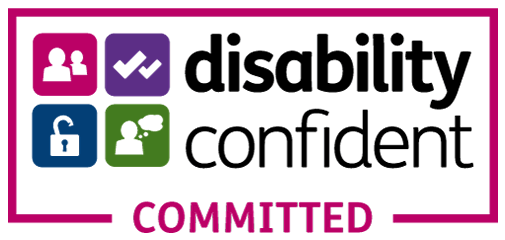Creative Writing Projects
“Writing is medicine. It is an appropriate antidote to injury. It is an appropriate companion to change.” – Julia Cameron
Writing is a powerful tool that has allowed humanity to advance through the ages. It is the cornerstone of every cultural and scientific development – an essential vehicle in the communication and spread of ideas.
We also believe in the power of writing as therapy and as a means of personal development. It can change the course of a person's life, bringing them new opportunities. And it can also break down discrimination and stereotypes, being used to enlighten and inform.
By empowering people through writing, the Arkbound Foundation seeks to build a more positive future and to bridge social divides.
However, despite most people being able to write, their ability to do so in a coherent and sophisticated way often varies. Creative writing, especially, allows people to think in new ways and find novel solutions, yet many have limited opportunity to practice it. For some groups in particular, these abilities are further hindered because of poor schooling, poverty, and various other factors. The result is that many people from disadvantaged backgrounds are denied the benefits and opportunities that writing can bring.
On top of this, people from disadvantaged backgrounds face further impediments in getting their work published, since they lack contacts in the publishing world – an industry with an embedded 'diversity deficit'. As cited by Professor Claire Squires and the 2015 'Writing the Future' report:
'the book industry risks becoming a 20th century throwback out of touch with a 21st century world – that 21st century world being one of cultural and racial diversity.'
Moreover, whilst there are growing pathways that enable people to publish without knowing the right contacts, these often require persistence and confidence – attributes that those from disadvantaged backgrounds often lack. Then, even if these hurdles are overcome and a book is published – its reach is often very small in comparison to those authors with the right contacts and industry connections.
The result of all this is that, not only are people from disadvantaged backgrounds more routinely denied the opportunities that writing can bring, but their voices are also left unheard. This gives rise to a gap in diversity, allowing stereotypes and misconceptions to fill its place.
The Arkbound Foundation seeks to tackle the diversity deficit in publishing by running creative writing workshops, providing 1-1 mentoring, sponsoring books and conducting other work.
Article: Creative Writing and Mental Wellbeing
By Nicole Boltz
Writing as therapy is not discussed as much as other forms of creative therapy, such as art and music or even drama. Yet the effects of writing are just as profound. Writing can be more than a hobby or a path to fortune and fame -more than a source of amusement or a way to entertain the masses. For some people writing serves as an anchor through the turbulent storm that is life; providing a measure of control where perhaps there is none otherwise.
One basic form of writing is keeping a diary – something that records your thoughts, desires, hopes, dreams and fears. A diary can become the best friend of one with a troubled mind, who is afraid to speak out yet needs some form of release. Perhaps the best known diary is that of Anne Frank. In her own words:
“I can shake off everything if I write; my sorrows disappear, my courage is reborn. But, and that is the greatest question, will I ever be able to write anything great, will I ever become a journalist or a writer? I hope so, oh, I hope so very much, for I can recapture everything when I write, my thoughts, my ideas and my fantasies.”
Young Anne was among the many souls caught amidst the tragedies of war. Writing became her salvation, her escape from the horrors of the world around her. Though she is gone, the essence of her being lives on. To read Anne’s Diary is to know her: to know Anne; her hopes, her dreams, her fears, her understanding of what is happening and what may become of her as well as those who share the hidden annex. Her diary, whom she referred to as Kitty, was her best friend in a time when the world seemed against her.
Another example of how writing affects mental wellness comes yet again in the form of a diary. But this diary was not for one person alone, but for many seeking to escape or make sense of their reality. This quote comes from a book: Restoring the Balance; The Effects of Arts Participation on Wellbeing and Health. Christopher Dawson speaks of his time in the army as a former soldier and how the use of a diary helped him and the men he served with.
“The diary was written into everyday even when some of the blokes had been out at the weekend they would come back and write in the diary. They started drawing in it, writing poems and really expressing themselves creatively. Everyone enjoyed doing it. It was a good way for them to get their problems off their chest. You could tell if someone was feeling a bit annoyed or aggressive because of the way that they wrote in the diary. It’s a fantastic read, full of pictures, poems, drawings and more, and as chance would have it I won the best recruit award and got to keep it. I don’t know if any of them kept up writing or doing poems or drawing. When you leave you don’t really keep in contact. I think though that being in the army makes you look at different ways of keeping yourself mentally stimulated and for us writing was a great way. A lot of people in the forces have a selective memory too. Sometimes they can’t remember things. Other times they refuse to remember. It’s nice though to be able to have the diary that we all wrote in to look back on to trigger happier thoughts.”
A diary is not the only form of writing to have an effect on mental well-being. Some people have a preference to escape reality altogether. In creative writing, the power is all yours. A writer gives life to new worlds, worlds which cannot be found at the end of a telescope. The laws of physics and realities of science need not apply. In writing the only limit is how daring the mind can be. In fact, it may surprise you to know just how profound an effect creative writing has had on the mental wellbeing of some big names, such as J.K.Rowling:
“Failure meant a stripping away of the inessential. I stopped pretending to myself that I was anything other than what I was, and began to direct all my energy to finishing the only work that mattered to me. Had I really succeeded at anything else, I might never have found the determination to succeed in the one area where I truly belonged. I was set free, because my greatest fear had been realized, and I was still alive, and I still had a daughter whom I adored, and I had an old typewriter, and a big idea. And so rock bottom became a solid foundation on which I rebuilt my life.”
J.K.Rowling suffered severe clinical depression, to the point of contemplating suicide. The Harry Potter author says she was prescribed cognitive behavioral therapy after suffering “suicidal thoughts” in the aftermath of separation from her first husband, Jorge Arantes, a Portuguese journalist. It was then that Rowling began writing the first Harry Potter book, which was eventually published in 1996. She is now one of the world’s richest women. The Dementors in the Harry Potter series were inspired by her depression.
So many other people have testified about the power of creative writing. Emma Thompson has said “The only thing I could do was write. I used to crawl from the bedroom to the computer and just sit and write, and then I was alright, because I was not present.” Thompson battled severe depression for most of her life, which at times has crippled her. After a public and painful divorce with, she suffered another period of severe clinical depression. Going through a painful separation is often a catalyst for depression, manifesting in periods of grief. Thompson credits writing on the computer as an aid to her recovery. She would often force herself to do this to get better and keep on some track.
Even politicians find solace in writing. This is what Winston Churchill said about it:-
“Writing a book is an adventure. To begin with it is a toy and an amusement. Then it becomes a mistress, then it becomes a master, then it becomes a tyrant. The last phase is that just as you are about to be reconciled to your servitude, you kill the monster and fling him to the public.”
Churchill is believed to have suffered from bipolar disorder and depression, to which he called his "black dog". Churchill inadvertently benefitted from his depressive episodes and his manic episodes. Granted with a rare surge of energy, activity, and restlessness, Churchill published forty-three books that filled seventy-two volumes while upholding his duties as acting Prime Minister. The acme of Churchill's career as a writer was his acceptance of the 1953 Nobel Prize in Literature, which honoured a number of his published works.
Research by Laura King shows that writing about achieving future goals and dreams can make people happier and healthier:-
“In a variation on Pennebaker’s writing paradigm, a sample of 81 undergraduates wrote about one of four topics for 20 minutes each day for 4 consecutive days. Participants were randomly assigned to write about their most traumatic life event, their best possible future self, both of these topics, or a nonemotional control topic. Mood was measured before and after writing and health center data for illness were obtained with participant consent. Three weeks later, measures of subjective well-being were obtained. Writing about life goals was significantly less upsetting than writing about trauma and was associated with a significant increase in subjective well-being. Five months after writing, a significant interaction emerged such that writing about trauma, one’s best possible self, or both were associated with decreased illness compared with controls. Results indicate that writing about self-regulatory topics can be associated with the same health benefits as writing about trauma.”
The Health Benefits of Writing about Life Goals by Laura.A.King
Writers across the world can testify of the impacts that creative writing can have. It is not just about leaving a behind a lasting legacy – something that will outlast you - but a vital support that no drug or therapy could hope to compete with.



